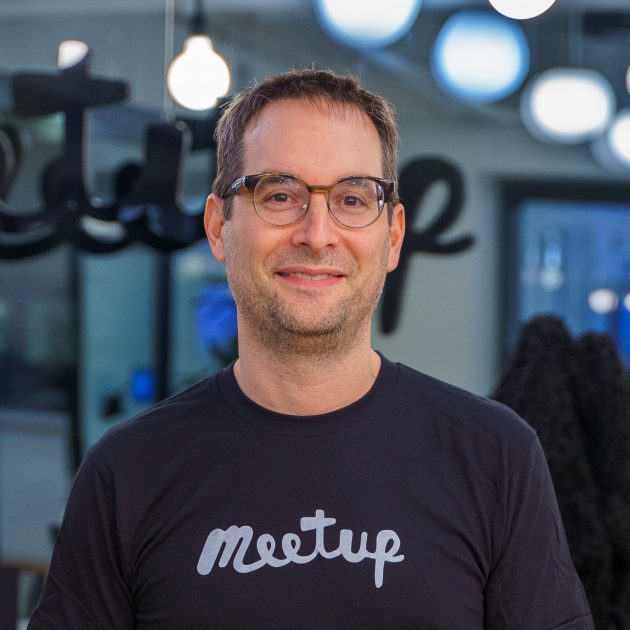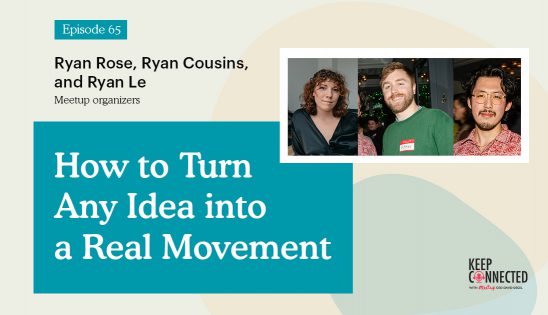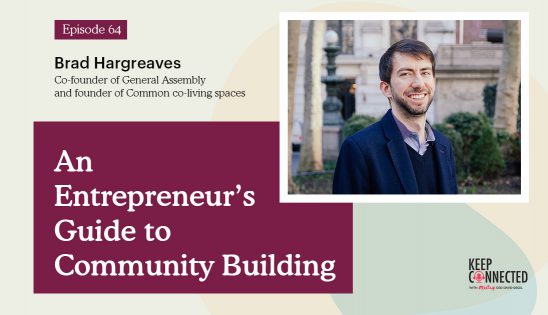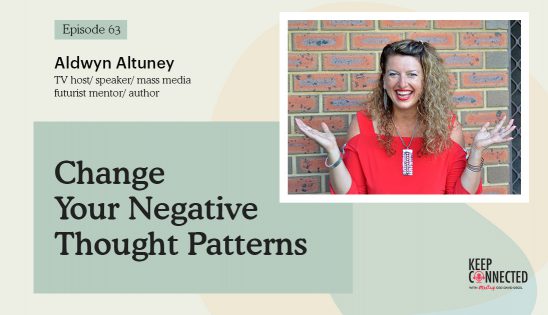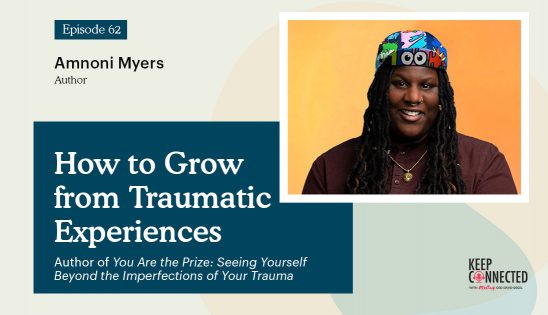Dr. Rick Hanson is a renowned psychologist and a New York Times best-selling author of several books, translated into over 30 languages with more than a million copies sold worldwide. His latest work, Making Great Relationships, shares the wisdom Rick has gained through a half-century as a professional psychotherapist, 40 years of marriage, and decades of parenting. David and Rick sit down to discuss the neurological angle on the benefits of daily meditation, even when done for as little as 60 seconds at a time. Their conversation lands on the intersection of compassion and assertiveness, “therapy talk” topics like empathic attunement and delivering social supplies, as well as learning to re-evaluate past relationships and inhabit self-forgiveness.
Show Notes
In this episode, we are talking to Dr. Rick Hanson, a renowned psychologist and New York Times bestselling author. This is a special one. There are so many takeaways. Take out your highlighter and pen. Happy reading.
—
Dr. Rick Hanson, welcome to the show. I am so happy to have you, author of 7 books, over 1 million copies sold, and that’s only in English translated into 31 different languages. It’s an honor to meet you.
It’s a pleasure. I wanted to give you a bow of gratitude for creating Meetup, which helped one of my therapy clients along the way. I’m sure it’s helped thousands, probably millions at this point to scale it along the way. From my heart, it’s a real service. You’ve made a big difference. I want to thank you.
Coming from you who has truly influenced and helped millions as well, it’s great to have you on the show. I want to start talking about you. Amazing people do extraordinary things. I was struck by something in your bio that I read about you. The fact that you highlighted that earlier in your life, you were shy and bookish. I’m guessing maybe more of an introvert. I sometimes think that those challenges have a meaningful impact on the focus on leadership, happiness, belonging and community. If you could share a little bit about how you were as a kid and how that impacted your entire half-century plus of work, that would be great.
The short version is that, by nature, I’m fairly introverted, somewhat shy and determined as an individual. I skipped a grade and I have a very late birthday. I was very young going through school. My loving, decent, traditional parents were poor at empathy. It’s the key distinction here. You can have loving decent parents who don’t get you. They’re not very good at empathic attunement. This is therapy talk, delivering social supplies and more therapy talk.
I was an outsider going through school, not bullied or traumatized but longing for warmth, connection, inclusion, value and so forth. That was a thin soup. It was like breathing through a straw. I wouldn’t die but it wasn’t enough. It left a big hole inside in terms of what we normally need even an introverted shy person like myself.
How were you when you recognized that hole? Were you 8, 9, or 10 or was it later in life?
I started feeling it early on. One of the central experiences of my life, I’ve written about, I was six years old. I was standing outside my family’s home in Illinois on the edge of the corn fields at dusk. I remember seeing the ruts in the dirt road in the corn on the other side of the street. I knew that there was a lot of unhappiness being constructed in my home, that it wasn’t about me. There was this wistful, clear, determined feeling that I had to get on my side.
I wasn’t against others but I had to find my way and play out the next ten years, essentially, until I left home at sixteen to go off to UCLA back in the day. I felt it but I didn’t know what to do about it. I had to start taking in the good. I had to help myself bit by bit, experience by experience and brick by brick to fill that enormous hole in my heart.
When did you recognize that it wasn’t your parents’ fault? They didn’t have the tools, which I love the distinction. They were loving and caring. They wanted everything to do to help you. They just didn’t have that tool set. Was it much later in life you realized that or was it even as a teenager you had that awareness?
I needed a little bit of a breath or space between my parents and me, which I got by going off to college at sixteen. Fairly quickly, I started realizing that they had their own lives. My dad grew up on a ranch in North Dakota with a Methodist rancher background. My mom was raised by a single mother. It is a fairly chaotic family situation for her. I started to understand it. It was when my wife and I had kids that I started to realize how I had been raised in some intimate ways as a very young child, which you don’t remember but when you watch your parents treating their grandchild in certain ways, you realize, “That’s how it was for me. That’s what traditional parenting looked like.”
Not mean but kids should be seen and not hurt style. You realize that as a parent, there are many pressures on you and many complicated dynamics. My dad had a big job. With World War II, he came into his career late. There was a lot of pressure on him to catch up. He wasn’t very available at the home. He didn’t give my mom the supplies she needed so then she turned to the kids and was frustrated. You start to understand this more when you have kids of your own.
For me, it’s been a healing journey, including recognizing, although I had diminished capacity as a teenager and not yet neurological maturation, I still made choices. I had made a choice to withhold love for my mother with my anger at her. That was bad for her and me. I got correct it later in my twenties and then thereafter. That was a real choice. It’s interesting to take into account the facts of what happened and their complexities. As we do that with our childhood, in our family of origin, we become more capable of relationships.
Thank God you had the opportunity because too often people will recognize those things and their parents could be gone by that time. You had the opportunity in your twenties to do that. I remember my favorite greeting card I ever gave my parents was something to the effect of when I was or turned 25. It says something like, “It’s amazing how much you learned in the last seven years.”
Meaning, I learned a lot more than when I was eighteen and how much I did not appreciate some of the things that they did and how much I appreciated them later on in life. What advice would you give to people who feel wronged by their parents and childhood, feel that who they are and the things that they dislike and probably also hopefully like about themselves the most is because of their parents, which is probably 95% of people that are reading. What would you say to them?
It also relates to what you do when you feel wronged by someone. When I was thinking about talking with you, I realized that for me, there are in a way maybe three headlines that are relevant, connect, repair and take in the good. What’s helpful when you’re looking back on your childhood and this is well supported by lots of research, it’s a standard, high-quality view, not because it’s mine, I’m sharing the standard high-quality view, which is to sort out what happened from the impact on you. What matters is how it landed for you. There’s a way to own, feel and heal it gradually over time. That’s important because we vary.
More than finding out what impacted you, what really matters is how it landed for you.
Some of us are more sensitive than others. Some of us have other things going on. Fundamentally, what happened inside your own being and how can you heal it? Second, it’s also important to form a coherent narrative. You want to form a reasonably realistic, accurate, without praise or blame. Just facts. What happened? Bring to bear an appropriate moral stance about it, realistic standards, for example, for what happened.
If your parent was abusive in real ways, as a therapist and I had a kid telling me about it, I would have to call CPS or Child Protective Services. That’s a real thing. On the other hand, if your parent was like my parent, this chronically anxious and critical as a way to help others improve in a framework of love in the context of their own very traditional upbringings, that’s a different set of facts.
It’s not about at all letting your parents off the hook. It’s coming to terms. You’re in effect dealing with three things. 1) What happened? 2) Appropriate standards and values related to that. 3) Where did they fall short? Where did they not fall short? What else was true? One thing that’s been striking to me, especially as I’ve gotten older, is how fantastic my parents were about many things that I didn’t notice because they were going fine and we habituate to what’s going fine. We don’t notice it anymore. You’re seeing the whole picture and in the context of, “What were the facts? What are the relevant values? How did it land inside,” then you can heal how it landed inside.
I’m going to riff on two things that you said. The first part is how it impacted you. That’s fascinating because you see siblings who grew up in the same home and who had the same parents. Oftentimes sometimes different types of parenting, even from the same parents but let’s say it’s the same parenting. They react incredibly differently to how that they were parented.
That’s because it’s how it impacted that person, even the same parenting could impact two people because of their make-ups and inclinations in very different ways. I love the impact on you rather than the broad impact, understanding what your needs are. It’s beautiful. I am going to take that together. The other thing is talking about what happened because I know for myself and I’m sure this is the case for many people, we remember very selectively.
We could create our histories off of frankly made-up photos that we might even see and we believe that they’re real. Our ability to have reality distortion fields is not limited to Steve Jobs but to everyone, especially how we grew up and what we choose to remember. I love the call-outs. Thank you for sharing them. You talked so much in your writings about self-compassion. I certainly want to get to the book Making Great Relationships but before that, if you could share a little bit more about the importance, strategies and anything around self-compassion? You have written numerous books about it. What can you share about that?
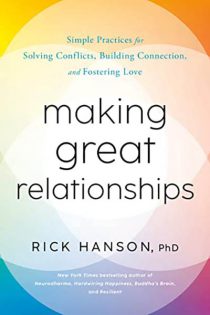
If we go back to those headlines, connect, repair, taking the good, connecting with yourself is foundational. What’s it like to be you? This is where self-awareness and mindfulness come in and growing inner strengths that enable you to tolerate parts of what it’s like to be you, rooms in the mansion of the mind that have been sealed off for some time maybe because there’s a lot of pain in there or there are parts of you that are very angry about certain things or even addictive parts of you. How do you come to terms with all of you? You have to start with yourself. I think about walking down the street and slowing down for 2 to 3 seconds with the faces of random strangers walking past and slowing down to connect with them.
It’s not like you’re pretending you’re reading their mind but quickly you can see in their face the impact of the life they have, the weariness, burden, struggle, unfulfilled longings, the worries about their kids. The fact that their feet already hurt and they haven’t even started their shift at the 7-Eleven. You can feel intimacy with what’s it like to be them in much the same way. We can bring that same tender awareness to what’s it like to be you. You have to start there. It’s foundational to have it matter. It’s not that you’re making yourself better than others. Very often people who present themselves in a way that’s arrogant, narcissistic and domineering, deep down inside are not very kind to themselves.
There’s a kind of emptiness inside as a result that they somehow try to manage by bullying other people or always having to be the top dog because it would be devastating if they felt less than others because there was not much sense of unconditional self-worth inside that they could use to balance that sense of feeling inadequate. We start there. You have to start there. It’s one thing that blew my mind as a young therapist, which was a long time ago.
You’re always a young therapist, even if not in body and mind.
“Beginner’s mind is a good thing to have all along the way,” to borrow the phrase from Shunryū Suzuki. As a young therapist, that took me a long time to realize that half the people I was seeing were fairly high-functioning people who could afford an individual psychologist. Half of them were not on their side. They were caring toward others. They were loyal to others. They were not loyal to themselves. In my book, there are very fundamental simple practices you can do to make things better.
The very first one is to be loyal to yourself because that’s foundational and it’s hard for people. There are things you can do to grow that inside yourself as a strength, taking in the good as it were of experiences of that like recognizing that you have rights. Having compassion for yourself, which is a warmth and caring aimed at suffering, including subtle forms of being tired, worn out and feeling like you’re running on empty.
The third is the muscular quality of moxie. Moxie is underrated, especially if you belong to a group of people. To generalize, many women and girls are socialized in childhood and adulthood not to have that strong backbone on their behalf. They should have it for others but not for themselves. It’s especially important to be willing to develop that. In those various ways, you can move toward getting on your side and being connected with yourself.
If you don’t represent yourself and your needs, you can’t expect other people to be mind readers. I remember my daughter was young when I said to her, “There are three things that I always want you to keep in mind. Be kind, confident and assertive.” I would talk to her like, “How do you think you’re being in each of these areas?” Assertiveness is something I don’t struggle with. It is a very important path to relationships and happiness in doing it the right and kind way. I’m glad you called that out.
You mentioned also upfront the need for slowing down. You also talk a tremendous amount about mindfulness and meditation. They’re not the same things. Mindfulness is certainly quite different. Some people are into meditation and other people aren’t as into it and that’s fine. How can you help us to understand mindfulness? How do you define mindfulness?
I have a business background too before I became a very soft-hearted therapist. Building on what you said with your daughter, there’s a zen saying, “Soft front firm back.” That summarizes a lot. Whether it’s the posture seated in formal meditation but in life soft. I see you moving. I moved too. There’s a nice combination there. I think of that as a strong heart, the intersection of compassion and assertiveness, love and power in effect.
A lot of the time, we are on autopilot. We’re acting out our habits. We feel a lot of internal pressure. It’s as if there’s an inner master in our head, “Do this. Now you have to do that.” A fair amount of the time we are dancing to the beat of other people’s drummers. We are feeling we have to do what they say, follow their program or play our part in their scripts. These are losses of autonomy right up front. We can get lost in a certain almost trance-like automaticity and so forth.
One of the great benefits of mindfulness, whether it’s in your day at work, in your day at home or life in general, is it wakes you up from the trance. When mindfulness in its essence is sustained by the present-moment awareness, that’s all it is. You’re here. You’re recollected rather than scattered into the thousand winds. You’re not hijacked. You’re not caught up in the inner ruminator or you’re ruminating about this or that, whether it’s beating yourself up or beating other people up inside the simulator of your little mini-movies. You’re running there.
Mindfulness pulls you out of that. It gives you information about the outer world. I’m mindful here so I noticed that you shifted your posture. As soon as I talked about soft front firm back, I noticed it myself. It’s awareness of the inner and outer world. That’s all mindfulness is. Alongside it can well be other things because mindfulness itself is morally neutral. They teach snipers how to be very mindful.
They teach a burglar to be very mindful about what’s happening in the sounds inside the home if they’re sneaking in there. Alongside mindfulness are our moral aspects and virtues of different kinds. Compassion for others, compassion for yourself, skillful managing of a tricky conversation with somebody. A lot of other stuff is going on there. If you want to train in mindfulness, one of the absolute best ways to do it is to meditate in whatever your preferred way is for a minute or more a day.
A minute or more a day can have a meaningful impact in helping to train mindfulness.
Including changing neural structures and measurably, that can be discerned in an MRI for example, lasting traces in your brain in doing that. It’s easy to be mindful of half of a breath over an exhalation but a full breath and then three breaths in a row. How about six breaths in a row? People usually lose it around the fourth breath. How about ten breaths in a row? It is about four minutes. It is the rate most people breathe. To stay stably present, you’re not trying to suppress anything. Sometimes you are going through awareness. Thoughts are moving through awareness but you’re not chasing anything, being hijacked by anything or fighting anything. You’re the space through which things are flowing.
My children call it, “You are the sky. Everything else is the weather.” As you train in that, you get better at that. A lot of research shows among the benefits, people become more focused at work and they become more able to disengage from painful sometimes silly stuff that sweeps us away. Mindfulness is central. There’s this classic line from the Godfather of Psychology in America, William James.
He says that the capacity to regulate attention is the foundation of personal autonomy because if you cannot regulate where your attention is resting, you’re a puppet. You’re being pulled by 1,000 strings, including the strings of the embedded learning in your body from the way you were brought up, for example. The other side of it, in terms of my background in Neuropsychology, is that attention is not a spotlight. Illuminating what a rest upon is a vacuum cleaner. It sucks it into you with a negatively biased brain.
If you can’t pull your attention away from resentment, grievances and self-criticism and way out of proportion to what happened, guilt, that’s what will become internalized in neurocircuitry in your brain. It will become increasingly lodged there. It’s important to reflect on, “Where’s my attention resting?” Mindfulness is like a shock absorber. It gives you space. If you can be mindful of your painful negative feelings, you’ll gradually decondition them because you’re starting to associate that untroubled spaciousness with your pain and sorrow and even trauma which is why sustained mindfulness practice is associated with healing from painful, traumatic experiences and the cultivation of greater stability of resilient wellbeing.
If you can’t pull your attention away from resentments, grievances, self-criticism, and guilt, these will become internalized in your brain.
The stereotype of the challenge around mindfulness is 1 of 2 I have found. It’s either one of the things you referenced, which is the rumination of past ills or the proverbial shopping list that people need to think about. I have to ask you. What did you find for yourself as the bigger challenge? What do you find most often in others? Is it the same or different? It varies per person but is it more about overthinking the past and trying to make sense of it? Is it more about planning and constantly being in the future in terms of challenges about being present for you what specifically was more of a challenge?
I’m a to-do list junkie. That’s my addiction.
That’s why you’re successful also. It’s a sword.
That’s what I have to watch out for in that planning mind. I’m a little more drawn in that direction. I’ve known of many people though, who have could be preoccupied. If you think about it, what’s occupying you? If you start to reframe it as, “What is occupying me? I don’t want those invaders. I want my country inside my mind, in other words.” I’ve seen it go both ways. There are two parts here.
In chaos and systems theories, there’s this notion of so-called strange attractors. It’s this cool term for the ways in which a complicated system tends to settle into certain patterns. A nice metaphor of it that I’m borrowing from others is if you imagine a flexible rubber sheet stretched out flat and then pulled down in various ways by strings attached to it that make different pockets in it, deeper or shallower, narrower or broader.
Think of that as a metaphor for the landscape of your mind. The nice rolling metal ball, falling or moving out of those pockets is what you’re paying attention to or what’s it like to be you at this moment? For someone who’s routinely depressed, that particular pocket in the sheet of potential states of consciousness is broad and deep.
It is easy for the ball of this moment of experience to get trapped in it and have a hard time getting out. One important thing is to be mindful of where your pockets are and the kinds of things that tend to catch you. Second, over time, heal the pockets of pain so that they’re gradually not deep and broad. In some cases, you clear them entirely. The sheet is level there. The third is important and this goes to my third headline, taking in the good.

Gradually develop other pockets, other strange attract like feelings of like you said with your daughter. You were trying to stabilize three major pockets for her kindness, confidence and assertiveness and have her cultivate and learn, which means changing your brain gradually over time those particular traits inside herself so they would attract and draw her states of consciousness more so she’d rest there more fully.
I love the visualization. Visualization and physical manifestation of feelings and thoughts are so incredibly helpful for the reader because it takes something abstract, pulls it into something concrete and makes it a lot easier to then associate with that. Thank you for that.
I’ll tell you the dirty little secret in psychotherapy coaching, human resources training and self-help. For most people, most of the time as their moment of consciousness slides into something good, it slides right out within seconds. There’s no lasting learning of any kind. There’s no durable increase in healing or cultivation, greater skillfulness or better habit formation. It was nice at the moment but that ball skidded right through the pocket rather than deepening it bit by bit.

That’s why it’s important to do what I call taking in the good. I’ve written a paper about it called learning to learn from positive experiences. It’s important to take that extra breath 2 or 3 to use evidence-based neurologically grounded methods to deepen the registration in lasting changes of neural structure and function of that experience at the time so you start moving from states to trait, from states of experience to deepening those traits inside yourself so that more and more you’re rested there. Those qualities are more stabilized in you and you rest in them much more readily.
The value of gratitude is to have numerous of those moments and see them so the ball doesn’t escape out but you could sit in that positive experience, be mindful about that positive experience so your brain can and as you’ve written about many times, hardwire itself into getting there.
A lot of what you’re trying to internalize is not called a positive experience. The feeling of assertiveness. I’m not sure I’d call that emotionally positive but it’s important to the sense of moxie or healthy remorse realizing, “I need to stop at 2 beers even though I like 4.” One thing I do a lot with people is ask, “Given the challenges in your life, what would be good to grow inside your mind? What traits are you working on? What strengths are you trying to grow?” Look for experiences that you internalize. That is one of the top three healing and personal growth and psycho-spiritual methods I know. Look for what you want to grow. Experience and internalize it.
Making Great Relationships, you have 50 different skills. The two that stood out for me were how to see the good in others, even when that makes it difficult and how to express your needs so that they are more likely to be fulfilled, which is about assertiveness. If you had to choose one that’s particularly foundational, I’d love to learn from there.
The book comes out of 50 years of doing therapy with people, being in relationships and doing business. I’ve been married for many years. In others, what can people do? That’s the thing. What do you do? A lot of people feel helpless or stuck. For me, there’s stuff you can do. That’s what’s important. I’ll tell you one that’s on my mind. Admit fault and move on. In other words, connect, repair and take in the good right there.
Often in life, you’ll bring a complaint to somebody and then they’ll be defensive, counterattack or be like, “How dare you bring something up?” They’ll somehow make it about themselves when in fact it’s your complaint and there’s some legitimacy in it. Flip it around. What would it be like for other people if routinely you slowed it down to decide for yourself what is reasonable and legitimate?
What they’re saying, especially in terms of correction from now on, is, “Focus on the future. Don’t argue about the past.” In other words, you’re not letting yourself at all be bullied by other people and you’re not turning into a doormat. The fastest way to get them out of your hair and also to put yourself on the moral high ground is to admit fault and move on.
It’s disconcerting for someone. They’re ready to put their dukes up and get at it. As soon as you say, “You’re right. I messed up. Here’s how I messed up. Here’s how I’m going to try to avoid them in the future,” they don’t know what to say.
A key thing too that I’ve found is distinguishing between what you could call a moral fault, deserving of guilt, remorse or even shame particularly and skillful correction for the future or what I call a gracious gift. You’re like, “From now on, I’ll do that. Our daughter hates the smell of mayonnaise so I don’t bring the jar out to the table.” It’s not that I deserve shame for bringing mayonnaise to the table or it’s about being unskillful but why not? I’m not going to bring mayonnaise out to the table. She has a very good nose. She could work for a living in a perfume company.
The point is not because they’re coming in guns blazing and coming in hot like, “You’re a bad person.” If you don’t want to take that on board, you don’t have to but you could still realize, “Given that person, from now on, I’m not going to talk to them until they’ve had a meal. I’m not going to talk to them after they’ve been to the bar. I’m not going to use that word anymore. I wasn’t trying to be mean but I can understand that framing, including in a larger multicultural context. I’m not going to use that word anymore. I get it and I’m going to go forward in a different kind of way.”
Sometimes people have asked me when I’ve talked about the whole idea of admitting fault, “What if you don’t think you’re wrong?” The greater awareness is to almost say, “There’s always a way that you could have been better.”
Another one related to that and it’s one of the chapters, is to forgive yourself. I had a moment where I was thinking about someone who had mistreated me. It was complex and this person was important to me. I went through a process of forgiving them, which is a real process. Each chapter in the book is three pages long. It’s like, “What can you do?” Go through how to have forgiveness be real. I was still stuck and I realized, “I had to forgive myself for my part in the complicated stew of the tangle we ended up with.” That is an important thing. A lot of us are carrying around these stones in our inner backpacks that would be good to release.
There’s a process in genuine self-forgiveness. You have to cop to your stuff. You got to make amends as best you can and feel the remorse that’s proportionate to what happened but at a certain point, you realize, “I’m going to walk a different road going forward. I can let that go. I don’t have to keep beating myself up about it.” Maybe if I think about it a year from now, I’ll still have that little wince like, “I screwed up there.” I’m not preoccupied with it. It’s not occupying me. That’s the key variable.
You co-authored your first book Mother Nurture with your wife. You run the top-ranked podcast Being Well with your son Forest. You integrate work and family in some interesting ways. What thoughts do you have on this? What advice do you have? It struck me as something that I thought was particularly special.
That’s kind of you and perceptive too. Part of it is to have a generosity of heart and spirit, which is enabled by the early chapters in the book, which has to do with filling up your cup because if you’re running on empty, you don’t have enough to give to others. It’s when our cup is overflowing and we’ve taken in the good. We have filled those holes in our hearts from our youth, our last job or marriage. On the basis of that, then it’s a lot easier to be generous.

Rapid questions. Quick answer. What most motivates you?
A lovingness flowing through and making room for it more and more. That’s what flows through. I feel motivated by love and service. I’m privileged enough to be able to have that be a primary motivation.
If you could access the time machine and go anywhere in the world at any point in time, where are you going?
A million years from now. I’m deeply interested in how it’s going to unfold. Humans have walked the Earth for 300,000 years and odds are we’re probably in the middle of the distribution of possible species. Longevity is notwithstanding the climate crisis, which is catastrophic and we’re going to have to deal with it. I am interested. I’d love to go back 2,500 years ago if I could kick it with the Buddha.
It is either way ahead or in comparison, a little bit behind 2,500 years is nothing in comparison to the million years ahead. Last two questions. Is there anything on your bucket list that you could share with us that you haven’t yet done?
I’d love to spend some time in deep contemplative practice. It’s never been on my path to go into a monastery for a sustained amount of time. There is a calling in me for a long time to do that. It’s been pushed aside. I have a lot of practice along the way but it’s different like the Dalai Lama, given his background. He’s doing formal practice 3, 4, or 5 a day. Typically, first thing in the morning. That’s missing and then grandchildren.
The last question is what do you most want to be remembered by?
Love is the intuitive answer that came up and goodheartedness, effort and learning.
The best way to learn is to teach. You have learned a lot because you’ve taught many others.
I founded this thing called the Global Compassion Coalition because the bottom line is if we’re going to deal with the scale of the world’s problems, we have to come and join together at scale to have resources that are big enough to change systemic sources of suffering in harm. It’s very relevant to meet up broadly numerous. It’s a coalition. It’s very heterogeneous. People organize around one thing, recognition of suffering in many terms and interest in changing the causes of it long-term. Our function is to celebrate our members. We’re creating a new global commons in which we’re supporting the members.
If we will deal with the scale of the world’s problems, everyone has to come together to gather resources big enough to actually change systemic sources of suffering in harm.
Meetup’s goal is to secure the loneliness epidemic that exists in the world and build a community, which changes people’s lives. We do that. We have 60 million members. We have 240,000 communities around the world. We save people’s lives. Thank God.
I know you do. It’s wild to realize that there are people who would’ve committed suicide who are not.
We’ve heard the stories of many. We’re very blessed to be a part of it.
If there’s anything we can do to support it, I’d like to because this was special.
I enjoyed it as well. Your many readers, fans, family and colleagues all have a great deal of gratitude. I feel very special and honored to have you on. I feel like we’ve been able to make a great relationship. I encourage everyone to check out the book. It is incredibly practical and action-oriented. Thank you much for being a fan of Meetup and for your time.
It’s a pleasure. It has been wonderful. I honor and appreciate you. Seriously, I have gratitude for what you and your whole team have created.
Have a great rest of the day.
—
Making Great Relationships is the name of his book. How could anyone not want to have a great relationship with Dr. Rick Hanson? I’m going to share four beautiful quick takeaway lines. First is the power of a one-minute meditation. It doesn’t need to be 30 minutes. Having a soft front and a firm back. Being loyal to yourself and going from a state to a trait, a mindset to action. If you enjoy the show, please subscribe, leave a review. Remember, let’s keep connected because life is better together.
Important Links
About Dr. Rick Hanson
 Rick Hanson, Ph.D., is a psychologist, Senior Fellow at UC Berkeley’s Greater Good Science Center, and New York Times best-selling author. His seven books have been published in 31 languages and include Making Great Relationship, Neurodharma, Resilient, Hardwiring Happiness, Just One Thing, Buddha’s Brain, and Mother Nurture – with over a million copies in English alone. He’s the founder of the Global Compassion Coalition and the Wellspring Institute for Neuroscience and Contemplative Wisdom, as well as the co-host of the Being Well podcast – which has been downloaded over 9 million times. His free newsletters have 250,000 subscribers, and his online programs have scholarships available for those with financial needs. He’s lectured at NASA, Google, Oxford, and Harvard. An expert on positive neuroplasticity, his work has been featured on CBS, NPR, the BBC, and other major media. He began meditating in 1974 and has taught in meditation centers worldwide. He and his wife live in northern California and have two adult children. He loves the wilderness and taking a break from emails.
Rick Hanson, Ph.D., is a psychologist, Senior Fellow at UC Berkeley’s Greater Good Science Center, and New York Times best-selling author. His seven books have been published in 31 languages and include Making Great Relationship, Neurodharma, Resilient, Hardwiring Happiness, Just One Thing, Buddha’s Brain, and Mother Nurture – with over a million copies in English alone. He’s the founder of the Global Compassion Coalition and the Wellspring Institute for Neuroscience and Contemplative Wisdom, as well as the co-host of the Being Well podcast – which has been downloaded over 9 million times. His free newsletters have 250,000 subscribers, and his online programs have scholarships available for those with financial needs. He’s lectured at NASA, Google, Oxford, and Harvard. An expert on positive neuroplasticity, his work has been featured on CBS, NPR, the BBC, and other major media. He began meditating in 1974 and has taught in meditation centers worldwide. He and his wife live in northern California and have two adult children. He loves the wilderness and taking a break from emails.
Last modified on September 6, 2023


